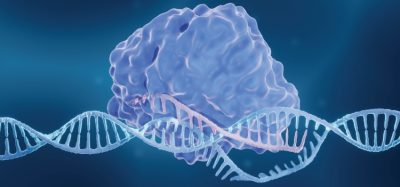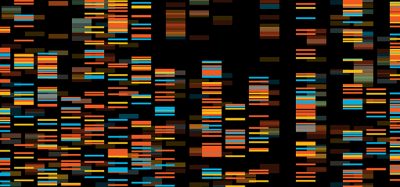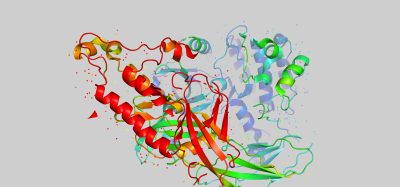Promising human antibodies fighting SARS-CoV-2
Posted: 1 June 2023 | Taylor Mixides (Drug Target Review) | No comments yet
Scientists have discovered that a vaccinated San Diego resident has produced antibodies that are effective against multiple variants of SARS-CoV-2, including Omicron. The research also identified three antibodies that can neutralise the virus, giving new insights into different binding mechanisms with the SARS-CoV-2 spike protein. The findings could help to develop more effective vaccines and antibody therapeutics against the virus, including its variants.
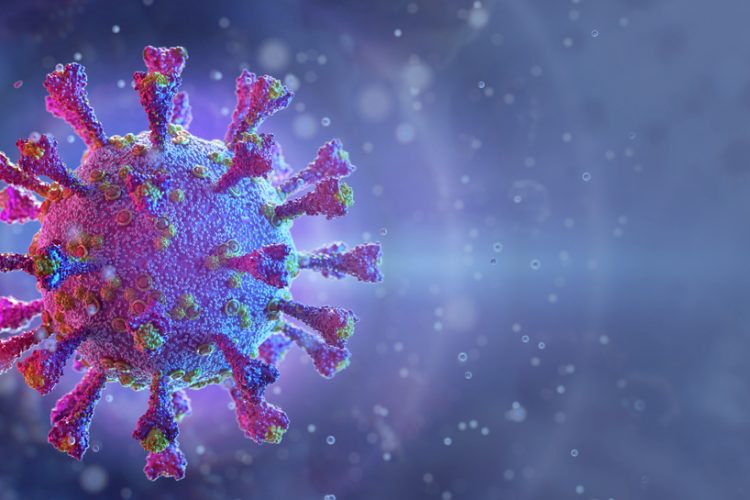
In a recent study, found in Cell Reports. La Jolla Institute for Immunology (LJI), US, scientists demonstrated how antibodies obtained from a clinical study participant attach to the SARS-CoV-2 spike protein and neutralise the virus. The coronavirus spike protein is a multifunctional molecular machine that mediates coronavirus entry into host cells. 1
New research from Moderna shows that their original SARS-CoV-2 vaccine can prompt the body to produce antibodies against the more recent Omicron variants, which has not been the case with many therapeutic antibodies developed early on in the pandemic. The study also includes 3D structures of three neutralising antibodies that bind to the spike protein. Previous studies had shown this occurrence, but this research provides new insights into why the vaccine is effective against newer strains of the virus.
The research identifies the vulnerable sites on the spike protein that can be targeted by human antibodies, providing valuable information for the development of future vaccines and antibody treatments.
Preclinical studies in mice suggest that some of these antibodies may also be effective in preventing severe cases of COVID-19.
“To blunt the next pandemic and protect people from seasonal re-emergence of this one, we need antibodies of the broadest possible capacity—ones that are not escaped,” says LJI President and CEO Erica Ollmann Saphire, PhD.
In reference to the study participant who had displayed the effective antibodies, LJI Instructor Kathryn Hastie, PhD, co-leader of the study and Director of the LJI Antibody Discovery Center reflected: “Studying that person’s immune response in detail uncovered antibodies that are still effective against many Omicron variants. We now have to figure out how to boost these antibodies that we want over others that are less effective.”
Uncovering antibodies to combat COVID-19 variants
Scientists in San Diego have collected blood samples throughout the pandemic from various labs globally to comprehend the roles of diverse immune cells against SARS-CoV-2. Among the immune system’s elite fighters, antibodies are produced by B cells, each with a unique structure to target a specific pathogen. In can be thought of as B cells identifying a target on a pathogen and producing bespoke ‘arrows’ to neutralise the threat.
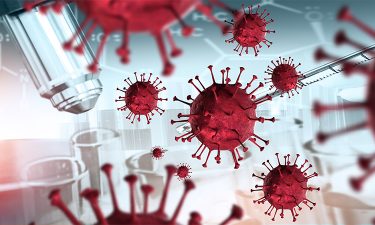 In the new study, antibodies were obtained from a clinical studies volunteer who received two doses of the Moderna SARS-CoV-2 vaccine. The vaccine prompts the body to produce the spike protein, which allows the immune system to develop antibodies against the real virus. The samples used in the study were collected before the emergence of Omicron, therefore any antibodies produced were due to vaccination rather than exposure to Omicron.
In the new study, antibodies were obtained from a clinical studies volunteer who received two doses of the Moderna SARS-CoV-2 vaccine. The vaccine prompts the body to produce the spike protein, which allows the immune system to develop antibodies against the real virus. The samples used in the study were collected before the emergence of Omicron, therefore any antibodies produced were due to vaccination rather than exposure to Omicron.
The emergence of the SARS-CoV-2 Omicron variant in late 2021 was marked by its ability to quickly spread, owing to mutations that helped it evade immune cell protection. Unlike earlier SARS-CoV-2 variants, many antibodies designed to fight them were unable to target Omicron.
Winning antibodies unveiled
The composition of virus-fighting cells and antibodies differs among individuals. In this study, researchers started with a pool of antibodies from a San Diego volunteer who had received two doses of the Moderna vaccine. This individual produced a strong pool of antibodies that could neutralise the original D614G variant of SARS-CoV-2. The researchers then tested this pool to see how many antibodies could still bind to the mutated virus as new viral variants of concern emerged.
“We found that this pool of antibodies could also neutralise other variants, such as Delta and Omicron,” relayed Hastie.
The researchers discovered that the volunteer still had significant levels of antibodies against the Beta, Delta and Omicron variants of SARS-CoV-2. They identified five antibodies that were particularly effective at reducing the infectivity of the BA.1 variant by more than 85 percent.
The researchers then conducted additional tests on these five antibodies; one of which, 1C3, showed potential in blocking a step in the infection process where the virus’s receptor binding domain interacts with human protein ACE2. However, this was only effective against BA.1 and BA.2 lineages. Another antibody, 1H2, was able to neutralise certain Omicron lineages but in a different manner than 1C3. Antibody 2A10 was able to react with all SARS-CoV-2 Omicron lineages tested, including the most prevalent ones such as XBB and BQ1.
Mapping vulnerabilities of SARS-CoV-2 spike protein
The researchers utilised cryo-electron microscopy, a high-resolution imaging technique, to map out the vulnerabilities on the spike protein. “We were really interested to see how these antibodies recognise the spike protein and structure,” says LJI Postdoctoral Fellow Xiaoying Yu, who co-led the new study with Hastie. “This structural work lets us see exactly how the antibodies interact with the protein and how they can neutralise the virus.”
Two of the antibodies studied were found to bind to two different parts of the spike protein simultaneously, according to high-resolution imaging conducted using cryo-electron microscopy. This binding mechanism locks the viral structure in place and effectively prevents infection by the virus. This finding is consistent with another recent Cell Reports study from the Saphire Lab showing the importance of bivalent antibodies against SARS-CoV-2 variants.
The three promising antibodies identified in the study showed potential in reducing the viral load in the lungs of mice infected with SARS-CoV-2 BA.1 and BA.2 when administered alone. This suggests that they could be used in the development of antibody therapeutics to treat COVID-19.
The researchers plan to continue their work by using the same pipeline to study more human antibodies. By doing so, they hope to find more potential targets for future vaccine development and therapeutics that can help combat COVID-19 and its variants. “We can carry out the entire pipeline of antibody discovery now,” says Yu. “This research will help us combat the variants we have right now and give us targets for future vaccine development and therapeutics.”
References
- Fang Li [Internet]. [cited 2023 May 11]. Available from: https://www.annualreviews.org/doi/abs/10.1146/annurev-virology-110615-042301
Related topics
Covid-19, Disease Research, Drug Targets, Targets, Vaccine
Related conditions
Covid-19, SARS-CoV-2
Related organisations
JI Antibody Discovery Center, La Jolla Institute for Immunology
Related people
Dr Erica Ollmann Saphire, Kathryn Hastie



